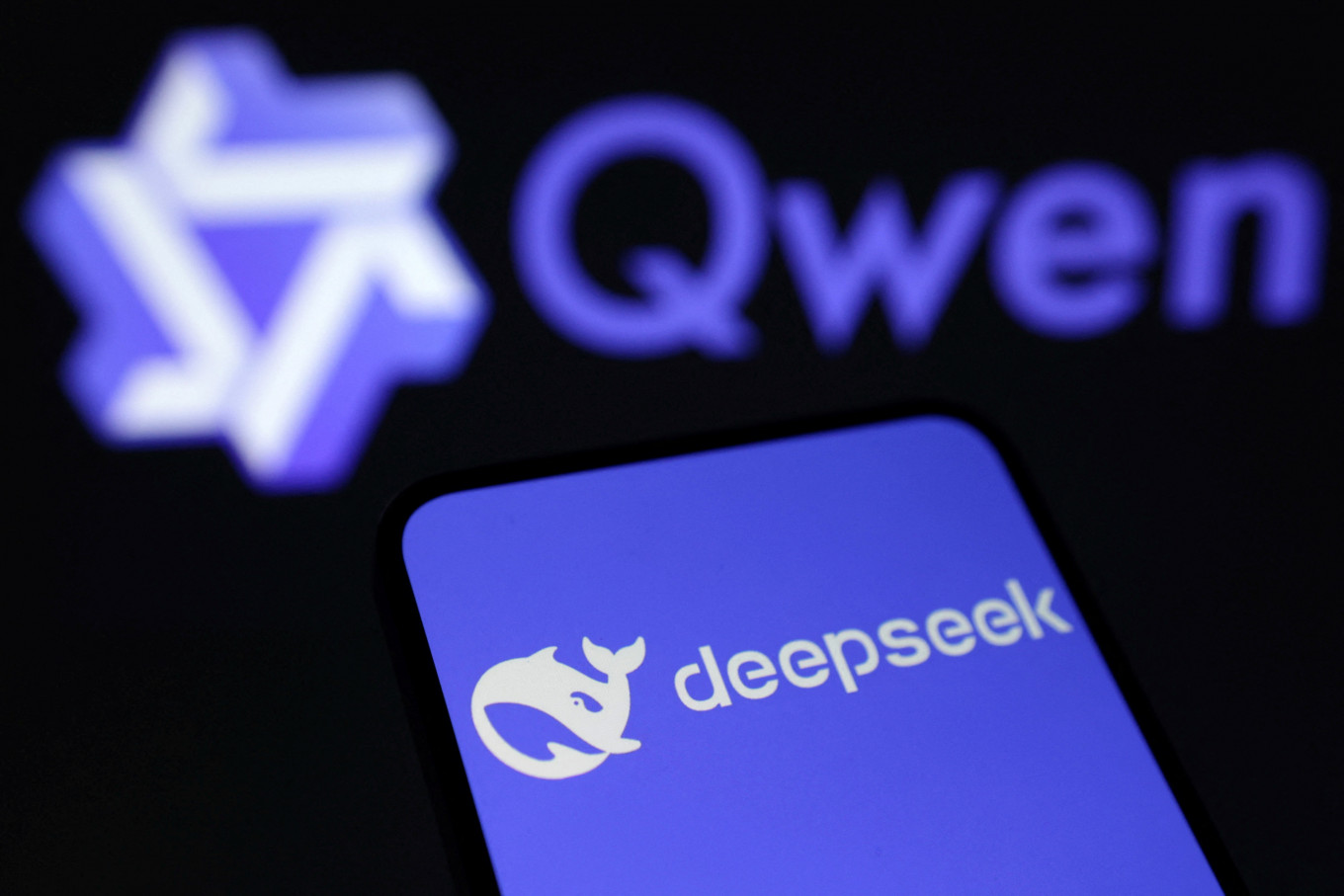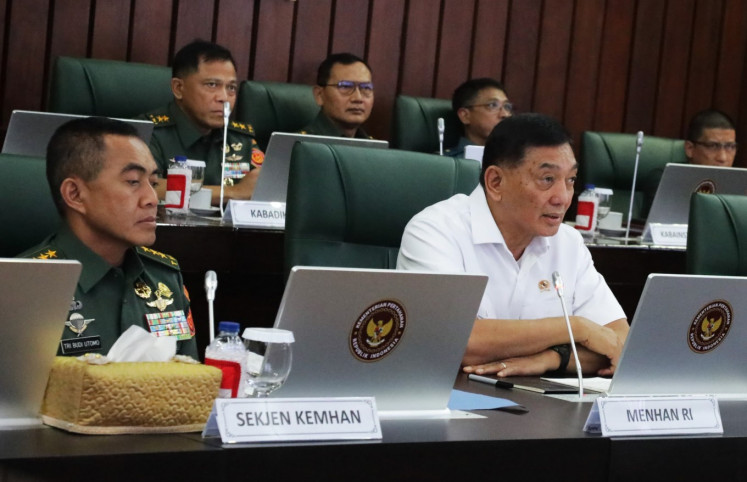Popular Reads
Top Results
Can't find what you're looking for?
View all search resultsPopular Reads
Top Results
Can't find what you're looking for?
View all search resultsDeepSeek: Open-source’s defining AI moment
The open-source movement has shown that AI innovation is no longer controlled by a select few companies advocating for closed, proprietary AI.
Change text size
Gift Premium Articles
to Anyone
T
he success of the open-sourced DeepSeek-R1 artificial intelligence reasoning model proves that well-optimized open models trained with custom data can rival proprietary large language models (LLMs) in terms of performance.
No longer does training high-performing AI models require billions of dollars and thousands of the latest chips, as DeepSeek-R1 was trained with significantly lower computing costs and supporting infrastructure and is freely available for use. This offers many opportunities for Indonesia.
Open source is the path forward for AI as it enables and ignites innovation across the ecosystem by tapping into the collective brainpower of organizations and individuals. It extends access to key AI system components, including datasets, code and model parameters.
With the diversity of approaches, skill sets and resources, truly transformative innovation is unleashed, fostering collaboration across the AI value chain, enabling stakeholders to learn from and build upon each other’s expertise, ultimately lowering costs.
So far many countries in Asia-Pacific are ahead of their global counterparts in deploying enterprise AI solutions into their business operations. Open source is the preferred route for businesses in the region to embrace AI solutions, as the latest AI Return on Investment research shows.
In Indonesia, nine in 10 surveyed enterprises reported that at least 75 percent of the already deployed AI solutions and platforms are open-sourced. For India, this number is at 96 percent, while South Korea and Singapore reported 83 percent and 81 percent, respectively, on the same matrix, leading Western economies like the United States (77 percent), the United Kingdom (76 percent) and Canada (75 percent).
What’s more, India (71 percent), Indonesia (57 percent) and South Korea (49 percent) reported plans to use more open-source technologies to optimize their AI implementation projects in 2025, again leading their counterparts in the West like the US (41 percent), the UK (38 percent), France (41 percent) and Canada (41 percent). This confirms Asia-Pacific's strong leadership in enterprise AI open-source adoption.
The open-source movement has shown that AI innovation is no longer controlled by a select few companies advocating for closed, proprietary AI. This turning point is expected to accelerate further advancements such as the practical application and accessibility of AI for enterprises of all sizes.
History has shown that open-source communities empower developers and researchers to accelerate responsible AI innovation while ensuring scientific rigor, trust, safety, security, diversity and economic competitiveness.
However, transparency in AI development varies. While open-source AI fosters openness, not all models disclose their training data. Some models remain opaque about their training sources, making transparency and governance a critical consideration for enterprises looking to deploy AI at scale.
While open-source AI offers significant advantages, there are also emerging concerns around data governance, compliance and security risks. For instance, AI models developed in different regions may be subject to varying regulatory requirements and data-sharing obligations. These geopolitical and compliance considerations are crucial for enterprises deploying AI across borders.
Another key consideration is multi-model and hybrid AI strategies. Open-source AI does not necessarily mean choosing one model over another, but rather leveraging a mix of models optimized for different use cases. The ability to integrate open-source AI with proprietary solutions in cloud, on-premises or hybrid environments enables businesses to maximize efficiency while maintaining security and compliance.
Finally, architectural innovations such as Mixture of Experts (MoE) are driving new efficiencies in AI model training and deployment. MoE has been instrumental in reducing computational overhead while maintaining high performance, offering up to 30 times inference cost advantages in enterprise AI applications.
The future of AI belongs to everyone as global collaborations continue to embrace an open AI innovation ecosystem, while developing code and integrating open-source principles into their AI development processes. Open access will transform today’s AI users into tomorrow’s AI builders, enabling applications in areas we have yet to imagine.
AI is the most transformational technology of our time. It has the potential to empower humanity in tackling the world’s most pressing challenges. However, AI’s true potential can only be unlocked when its development is democratized rather than controlled by a select few.
Open-source AI will ensure that individuals, businesses and governments across Indonesia and beyond can access its benefits and opportunities, ushering in a new wave of technological and economic progress while maintaining compliance, security and long-term sustainability.
***
The writer is president director of IBM Indonesia.











